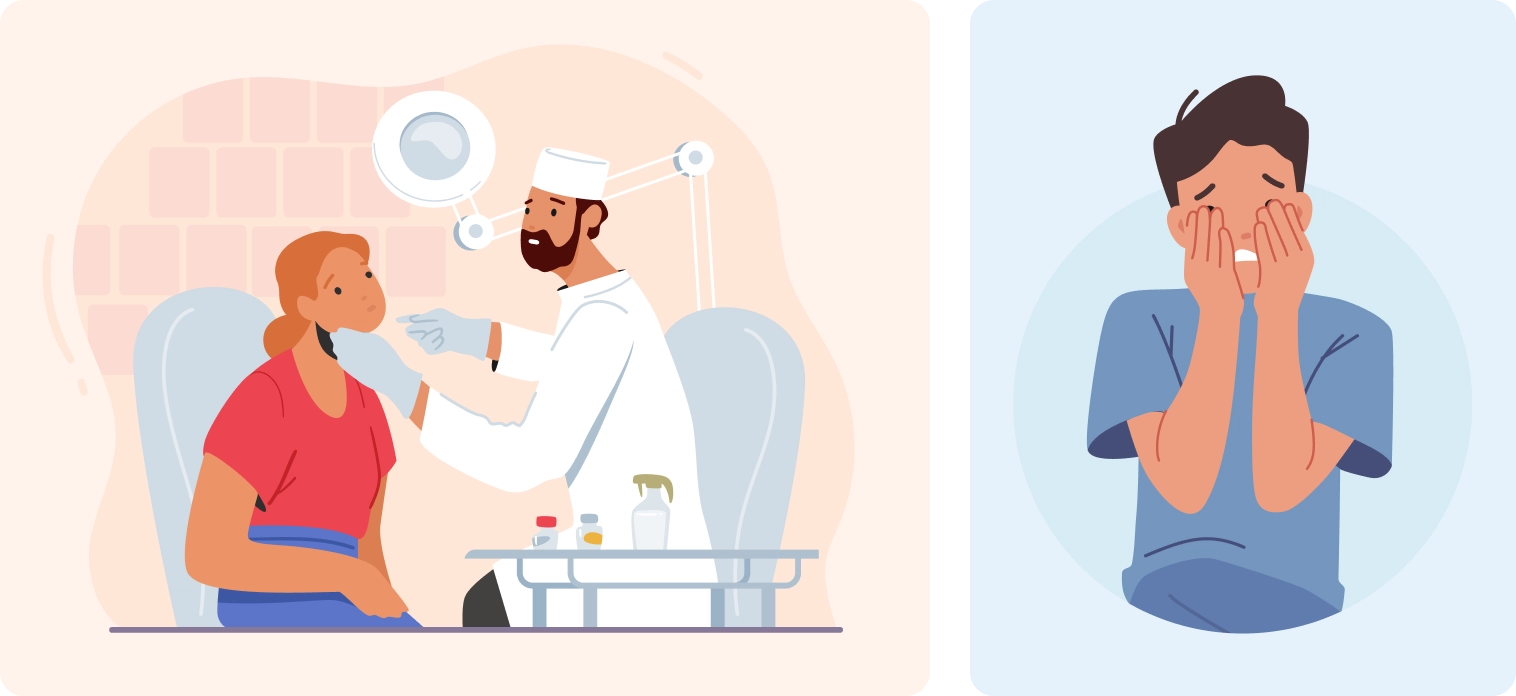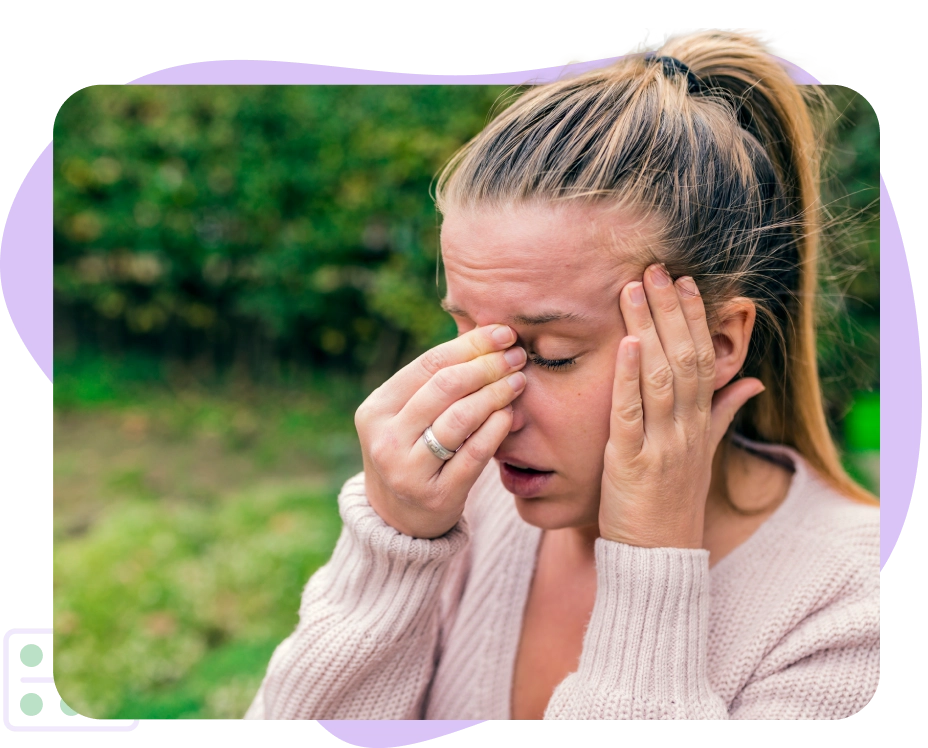Overview
Sinus infection, also known as a sinusitis, is a swelling or inflammation of the tissue lining the sinuses (the hollow cavities in the skull around the nose and eyes) that makes it hard for mucus to drain and causes stuffiness or nasal build-up.

Types
There are three main types of sinus infection:
Acute Sinusitis
Acute sinusitis typically occurs as a result of a viral infection, such as the common cold, and may also be triggered by bacteria. It usually resolves on its own within a few weeks.
Chronic
Chronic sinusitis is sinusitis that lasting longer than 12 weeks despite treatment. It may be caused by nasal polyps, deviated septum, allergies, or underlying medical conditions.
Recurrent
Recurrent sinusitis refers to multiple episodes of acute sinusitis occurring within a year. It may be associated with allergies, anatomical abnormalities, or immune system disorders.
Causes
Sinus infection can be caused by various factors, including:
- The most common cause of acute sinusitis is a viral infection, such as the common cold or influenza (flu).
- Bacterial infections often follow a viral infection and are more common in people with weakened immune systems or underlying health conditions.
- Allergies
- Nasal Polyps
- Anatomical Abnormalities such as a deviated septum, nasal bone spurs, or narrow sinus openings
- Conditions that weaken the immune system, such as HIV/AIDS, diabetes, or autoimmune diseases
- Environmental Factors such as air pollution, cigarette smoke, dry air, or changes in air pressure
- Water sports such as swimming or diving if water enters the nasal passages
- Upper Respiratory Tract Infections such as adenoiditis or tonsillitis that spread to the sinuses
Symptoms
The symptoms of sinus infection may include:
- Pain, pressure, tenderness or throbbing around the eyes, forehead, or cheeks
- Nasal congestion or blocked nose making it hard to breathe
- Thick yellow or green discharge (mucus) from your nose
- Loss or reduced sense of smell or taste
- Cough, often worse at night
- Fatigue
- Fever (high temperature)
- Bad breath (halitosis) which can be caused by mouth breathing
- Sinus headache
- Toothache
Treatment
For mild sinus infections:
- Getting lots of rest
- Staying hydrated by drinking plenty of water
- Keep indoor air moist
- Cleaning your nose with a salt water solution (saline nasal rinse)
- Taking painkillers such as Paracetamol or NSAIDs such as Ibuprofen (remember not to give aspirin to children under 16 due to the risk of Reye’s syndrome)
- Avoiding allergic triggers such cigarette smoke and air pollution
For more severe sinus infections:
- Decongestants or nasal sprays (not for use without a prescription for more than a week)
- Allergy medications or immunotherapy for sinusitis related to allergies
- FESS, a surgery to remove blocked tissue, may be considered for chronic or recurrent sinusitis that does not respond to other treatments after 3 months, particularly if anatomical abnormalities are present.
If you need help with your sinus infection, a PillSorted pharmacist can provide you with advice and treatment online, without the need to visit your GP. This is a free service as part of the UK’s Pharmacy First program.
PillSorted provides advice & NHS-funded treatment for sinus infections. Book an appointment now if you would like a consultation.

FAQ
What is Pharmacy First?
Pharmacy First is NHS funded program that allows pharmacists to supply prescription-only medicines, including antibiotics and antivirals if clinically appropriate, to treat several common health conditions, including sinus infections, without the need to visit a GP.
Are sinus infections contagious?
Sinus infections (sinusitis) is not contagious, but the bacterial or viral infection that causes it, is. Wash your hands frequently and avoid close contact with individuals who have respiratory infections.
How long does a sinus infection last?
It depends if your sinus infection is acute chronic or recurrent. Acute sinusitis usually caused by the common flu or cold lasts less than 4 weeks.
Is a sinus infection dangerous?
No, most people with a sinus infection such as acute sinusitis don’t need to see a GP. And you can recover with home remedies and OTC medicines. But you should contact a health care provider immediately if you have symptoms that indicate a serious infections such as pain or swelling around the eyes, double-vision, a high fever, or stiff neck.





















